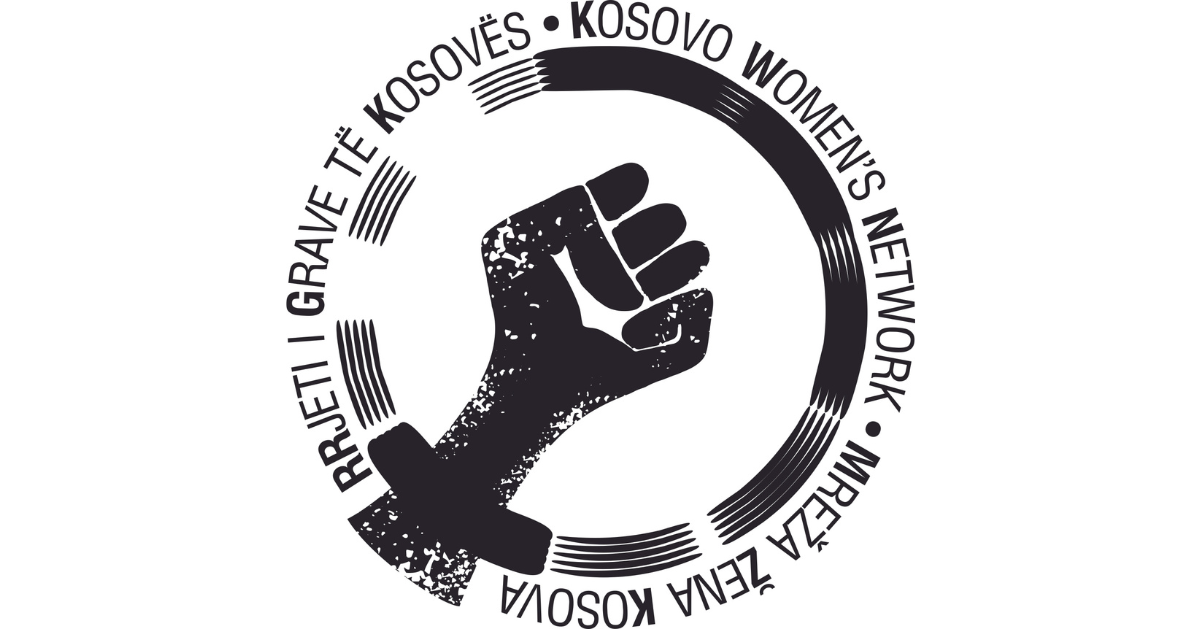03 April 2023
Honorable Prime Minister of the Republic of Kosovo, Mr. Albin Kurti,
Honorable Minister of Finance, Labor and Transfers, Mr. Hekuran Murati,
Honorable Minister of Justice, Mrs. Albulena Haxhiu,
Honorable Minister of Health, Mr. Arben Vitia,
I am writing on behalf of the Kosovo Women’s Network (KWN), as a network of 139 diverse women’s rights organisations committed to protecting and promoting the rights of women and girls, to express our concern regarding the recent changes to the responsibilities of ministries related to social services and the lack of consultation with key stakeholders prior to making such drastic changes, including insufficient consultations with women’s rights organisations (WCSOs), including KWN, as experts on these issues.
In 2020, Lëvizja Vetvendsoje! and the Democratic League of Kosovo (LDK) coalition government decided, without appropriate public consultation or consultation with experts like KWN, to merge the Ministry of Labour and Social Welfare into the Ministry of Finance, Labour, and Transfers (MFLT). In 2021, Lëvizja Vetvendsoje! came to power as a central-left political party amid promises that social security would be a priority, as stated in several sections of its party program 2021.1 KWN hoped that these commitments would benefit and improve the lives of citizens on the margins, particularly women, by strengthening social services. Unfortunately, the current Government of Kosovo continued to administer social services under MFLT, and there has been little to no progress on any of the key laws awaiting adoption towards improving social services, while systemic under-funding of social services has continued.
In the conference organized by the Council of Europe, on March 29, 2023, it was emphasized that from this year the Department for Social and Family Policy has moved to the Ministry of Justice. Other sources have informed us that the structure has changed where this Department has become the Division for Policy and Social Services. According to this source, based on the 2023 Budget Law, Social Services, Child Protection, the General Council, and the Inspection have moved to the Ministry of Justice. Furthermore, we have understood that social services for persons with disabilities have been transferred to the Ministry of Justice, while the management of residential institutions has been transferred to the Ministry of Health. This entire change was made without any public consultation, while the regulation that defines the government’s areas of responsibility has not yet been approved. Therefore, we consider that such a decision, without a secondary legislation that clearly divides these responsibilities, without consultation or prior warning, is disturbing.
We are very concerned by these changes, which affect our diverse members and the women they serve, including people with disabilities, victims/survivors of gender-based violence, and other vulnerable categories. We are deeply concerned that these changes may further delay the finalisation and adoption of crucial still outstanding legislation related to social services, the quality of social services, and the allocation of sufficient budget for these services. Our concerns derive from our extensive expertise, research, and evidence collected over the last two decades. More precisely, we are concerned that:
- Social services were not initially part of the Ministry of Justice’s mandate.2 Given the existing workload of the Ministry of Justice, we are concerned if it will have sufficient human resources to take on the extensive responsibilities that come with oversight of social services. Social services for persons suffering from gender-based violence require a professional approach by trained, certified psychologists and social workers. We are concerned whether the Ministry of Justice possesses the relevant expertise to monitor and ensure quality service provision, as this is outside its mandate. We have proposed several requirements for responsibilities and minimum criteria for competencies in our comments on both the draft-law on Social Services (Annex 1) and the draft-law governing gender-based violence (Annex 2) in line with the Istanbul Convention, and any Ministry providing oversight must have the qualifications necessary for adequate monitoring of these services.
2. The transferring of these competencies to the Ministry of Justice likely contributes to further delaying the adoption of these key laws, which are already delayed and are essential for improving essential services in line with the Istanbul Convention. Now, the aforementioned draft-laws will need to be revised to clarify the new roles and responsibilities. Related, we remain concerned as to whether the government and parliament will ensure that our previously submitted recommendations on these key draft laws will be addressed, ensuring the provision, financing, monitoring, and coordination of key services for persons who have suffered gender-based violence as per the requirements of the Istanbul Convention, particularly as the last draft-law on gender-based violence in the parliament did not address our suggestions and therefore is not in line with the Istanbul Convention.
3. Treating disability as a health issue is discriminatory and not in line with the United Nations (UN) Convention on the Rights of Persons with Disabilities (CRPD), an international human rights treaty ratified by the UN in 2008. The Convention recognises disability as “an evolving concept and that disability results from the interaction between persons with impairments and attitudinal and environmental barriers that hinders their full and effective participation in society on an equal basis with others”, which marks a paradigm shift from an understanding of disability as a medical condition to one that sees disability as the effect of the interaction between an individual’s impairment and the barriers society creates.3 It is the state’s responsibility to ensure that social, economic, and physical conditions exist to enable persons with disabilities the opportunities to participate equally in the society. Further, Article 19 explains the importance of personal assistants for independent living and it obliges states, “to ensure access to a range of in-home, residential, and other community support services, including personal assistance necessary to support living and inclusion in the community and to prevent isolation or segregation from the community”. Article 6 recognises the unique multiple inequalities and barriers that women with disabilities may face and calls on states to provide additional protective services: “1. States Parties recognize that women and girls with disabilities are subject to multiple discrimination, and in this regard shall take measures to ensure the full and equal enjoyment by them of all human rights and fundamental freedoms. 2. States Parties shall take all appropriate measures to ensure the full development, advancement and empowerment of women, for the purpose of guaranteeing them the exercise and enjoyment of the human rights and fundamental freedoms set out in the present Convention.”4 Although Kosovo has not ratified the Convention, these best practices and approach should be considered and implemented by Kosovo moving forward. Additionally, the European Commission recently adopted the European Disability Strategy 2021-2030, which aims to empower individuals with disabilities and eliminate barriers.5 Kosovo also should strive to move in this direction as part of its ambitions to join the EU. In conclusion, disabilities should not be treated by the Ministry of Health, but rather as a social service, or a human rights issue.
To protect women and girls, among others, in accordance with international and government commitments, KWN recommends that the Government of Kosovo:
- Reopen the Ministry of Labour and Social Welfare and return responsibilities as they were previously. Moving the responsibilities to another ministry has not and will not sustainably address the fundamental issues and challenges that exist. Rather than moving the responsibilities, the Government needs to focus its energies on clarifying responsibilities within the legal framework, adequately budgeting for them, and actively monitoring their implementation. For this KWN has provided very clear suggestions in the two aforementioned draft laws that would clarify these roles and responsibilities, enabling the Government to hold actors accountable to their legal obligations. Establishing responsibilities clearly in the aforementioned laws, coupled with adequate budget allocations, will address most of the shortcomings and issues that exist, without needing to move responsibilities again. In moving these responsibilities, the entire legal framework will need to be reviewed and revised. Further, we are concerned about whether these changes also will be sustainable in the future in case of government changes, and whether future ministers of justice may be as committed to pushing forward reforms, which could place these processes at risk.
2. Actively consult WCSOs that are knowledgeable in social services, including KWN, to make evidence-based reforms.
3. Upon clarifying roles and responsibilities, work with the parliament and corresponding Assembly committees to finalize these key laws: Law on Prevention of Domestic Violence, Violence Against Women and Gender Based Violence (recommended by KWN to be rephrased as the Law on Prevention, Protection and Rehabilitation from Gender-Based Violence); Law on Family and Social Services; and Law on Social Housing). The government and parliament must actively consult knowledgeable WCSOs in this process, including KWN, drawing from their recommendations and expertise.
4. Ensure that the monitoring of comprehensive services for victims/survivors of gender-based violence remains within the Department for Family and Social Policy, as it is important that survivors are treated and supported properly by qualified professionals and that rehabilitation and reintegration is ensured. Adequate budget needs to be allocated and municipalities encouraged to request resources for more social service officers to meet the evidence-based need for more human resources for treating cases. The financing formula for municipalities and requirements for them to allocate sufficient financing needs to be clarified in the legal framework, particularly in the draft Law on Local Government Finance, currently being amended. This includes ensuring gender- and child-responsive budgeting as part of the financing formula for municipalities and requiring municipalities to budget adequately for social services.
5. Treat disability not as a health issue, but rather focus on establishing infrastructure that respects the rights and dignity of persons with disabilities, as well as supports their active inclusion and engagement in society. These services should be under the Ministry of Labour and Social Welfare, and if this is not possible, then, as a human rights issue, with the Ministry of Justice among other social services if the Government insists on proceeding with this decision.
KWN and our members are committed to prioritising attention to women who suffer from poverty, violence, and discrimination, such as based their disabilities. KWN has conducted extensive research pertaining to gender-responsive budgeting for social services,6 gender-based violence,7 gender-based discrimination,8 gender and disability in EU law,9 and gender-responsive financing of personal assistants for persons with disability in Kosovo.10 KWN’s research and expertise can and should be used to inform the important processes of such ministerial reforms as well as of drafting and finalising of laws, policies and governmental programs. Using such gender analyses is essential for protecting and promoting the rights of diverse women and girls in Kosovo. We remain committed to supporting the government throughout these reform processes through our expertise.
We welcome a meeting to discuss solutions to the current crisis and these recommendations further.
Igballe Rogova
Executive Director
Kosovo Women’s Network




